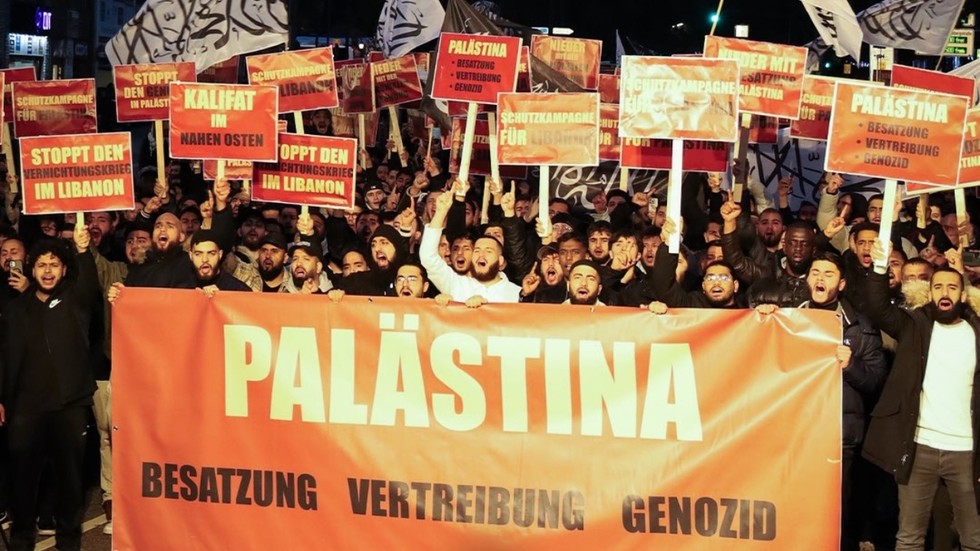On a recent Saturday, approximately 2,000 protesters gathered in Hamburg, Germany, to voice their opposition to what they described as Israeli “genocide” in Gaza and Lebanon. The demonstration was organized by Muslim Interaktiv, a radical Islamist organization whose leader, Joe Adade Boateng, also known as Raheem Boateng, called for the establishment of a caliphate in the Middle East. The rally was attended by demonstrators who chanted “Allahu Akbar” and waved banners condemning Israel’s military actions, which they claim target civilians and infrastructure in Gaza and Lebanon. The claims about the situation in these regions have been amplified by reports indicating that thousands have been killed in the ongoing conflict, particularly following the recent escalation sparked by Hamas’ attack on Israel.
Boateng’s statements during the protest included allegations that the Israeli government was deliberately targeting vital civilian facilities such as hospitals and schools while disregarding loss of life in its military operations. He drew attention to a series of explosions in Lebanon, which were reported as part of Israeli intelligence operations aimed at Hezbollah. This context of escalating violence has resulted in significant casualties, with reports indicating that thousands have died in both Gaza due to an Israeli military campaign and in Lebanon as Israel has launched airstrikes amid rising tensions.
The protest occurred against a backdrop of heavy police presence, including a water cannon on standby, to ensure order. Although the rally was initially planned to last three hours, participants began dispersing just 40 minutes in. Despite the charged atmosphere surrounding the event, there were no significant incidents or clashes reported, embodying a nuanced response to the rising tensions in the region. The demonstration reflected not only a show of solidarity with those in Gaza and Lebanon but also the controversial views held by members of the Muslim Interaktiv group, which has been criticized for its radical stance.
Muslim Interaktiv has previously generated headlines, such as during a rally in April where participants labeled Germany a “dictatorship of values.” This group advocates for a caliphate, positioning it as a solution for societal issues within Germany, and is believed to be linked to Hizb ut-Tahrir (HuT), a radical organization banned in Germany since 2003 for its promotion of violence. These connections raise questions regarding the group’s motivations and the broader implications of its rhetoric. The German authorities remain vigilant, as they monitor these gatherings while balancing concerns about public safety and freedom of expression.
Amid the criticisms of its ideology, German law enforcement has defended the decision to permit the recent Hamburg protest, asserting that freedom of assembly is a fundamental democratic principle. However, there were specific prohibitions placed on participants to prevent them from promoting violence, glorifying attacks on Israel, or calling for a caliphate within German borders. These constraints serve to highlight the delicate balance between allowing public dissent and maintaining social order in the face of radical ideologies that could incite further division and unrest.
The protest in Hamburg serves as a reflection of the wider divisions within society regarding the Israeli-Palestinian conflict and the implications of radical Islamism in Western nations. With tensions continuing to rise in the Middle East, the rally underscores the struggles faced by governments in addressing the ramifications of such movements while simultaneously trying to uphold civil liberties. The ongoing violence in Gaza and Lebanon, along with the calls for a caliphate, underline the urgent need for dialogue and resolution in a landscape fraught with complexity and heightened sensitivities on all sides.

